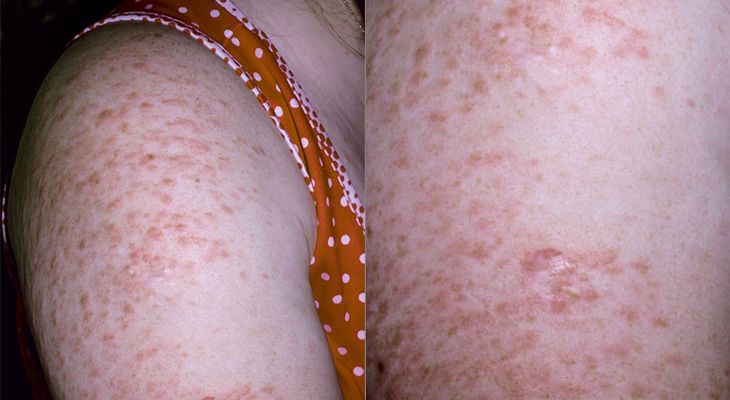A 28-Year-Old Woman Presents With a Long-Standing History of Intermittently Painful “Bumps” on Both Her Shoulders and Upper Back
A 28-year-old, slightly obese Caucasian woman presented with a long-standing history of intermittently painful "bumps" on both shoulders and her upper back. The patient's father and paternal uncle had similar skin lesions in the same anatomic distribution. Review of systems disclosed regular but very heavy menstrual periods, often lasting for 7 to 9 days, and chronic constipation. General physical examination was unremarkable with the singular exception of innumerable, tender erythematous plaques and occasional papulonodules over the shoulders and upper torso. A punch biopsy of one such lesion confirmed the clinical suspicion of benign leiomyoma. A routine laboratory panel disclosed hypochromic, microcytic anemia, and a subsequent serum ferritin was found to be depressed at 10 g/L. Due to the history of profound and persistent menstrual abnormalities uncontrolled by prior administration of oral contraceptives, the patient was referred for evaluation by a new gynecologist. Pelvic ultrasound revealed severe uterine leiomyomatosis; this was felt to be the likely etiology for long menstrual periods, excessive menstrual bleeding, and iron deficiency anemia.

This patient is at increased risk for which type of neoplasia?